ECONOMIC DEVELOPMENT

Musical heritage: Meet Earl Scruggs and Don Gibson
Earl Scruggs (1924-2012) Earl Scruggs in 2005. Photo used under Creative Commons license. He was 10 years old on the family farm in Flint Hill — about eight miles from the former county courthouse in Shelby that now bears his name — when Earl Scruggs and older brother Horace got into a “fuss.” After it […]

Finding the Music, Part 3: ‘A 38-year overnight success story’
This is the third part in a three-part series. Read Part 1: Turning to musical heritage to fuel the future and Part 2: Looking for one ‘unique asset’ to catch up on the story. The revivalists in Shelby focused on “Uncle Earl” Scruggs and Don Gibson, approaching the county, the courthouse’s owner, about a first-rate […]
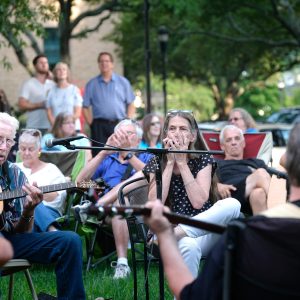
Finding the Music, Part 2: ‘We needed to do something bold’
This is the second part in a three-part series. Read Part 1: Turning to musical heritage to fuel the future to catch up on the story. You can find Part 3: ‘A 38-year overnight success story’ online as well. What happened in Shelby played out across the Carolinas, where textiles were once the driver of […]
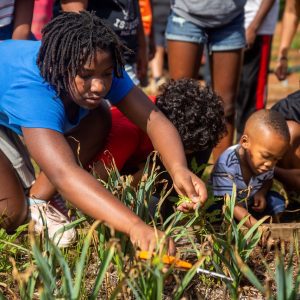
Community foundations demonstrate the importance of regional links
Can philanthropy foster greater regional connection? Yes, according to our research for the Carolinas Urban-Rural Connection project. But it’s not just the movement of money that matters, say local leaders: it’s the regional exchange of ideas about how to put that money to work that seems to make a difference. Community foundations, by definition, have […]

Should Charlotte make one of its major streets pedestrian-only?
Charlotte has a reputation as a car city, but many of its leaders badly want to promote more biking, walking and transit use. That’s one reason an intriguing idea kept surfacing at this week’s City Council Transportation & Planning Committee meeting: Why not take all the cars off a major street in uptown or South […]

People appear to commute farther for certain kinds of jobs
To better understand commuters in the Carolinas Urban-Rural Connection region down to the individual level, we studied anonymized cell phone tracking data at select employment locations, seeking to determine how commuter connections differ between types of business districts and types of firms. By mapping the residential location of workers at a broad range of employment […]
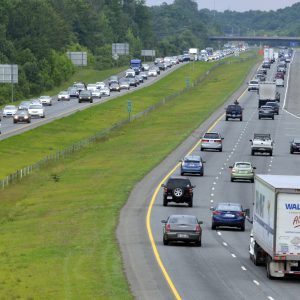
Commuting and the Charlotte region’s economic connections
An array of environmental, cultural and economic connections together give rise to the interdependence of the Carolinas Urban-Rural Connection study region. But none of these connections are more economically significant than the flow of workers within our regional economy. Counties within the region relied on out-of-county commuters for their workforces more in 2015 than at […]
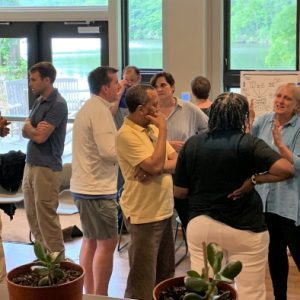
Can these programs bridge the gap between urban and rural leaders?
Are rural leaders different than their urban counterparts? And how can programs that develop leaders bridge the gap between them, if indeed there is one? With leadership emerging as a key issue in research for the Carolinas Urban-Rural Connections project, we asked several leadership programs in the Carolinas about their experiences working with leaders from […]
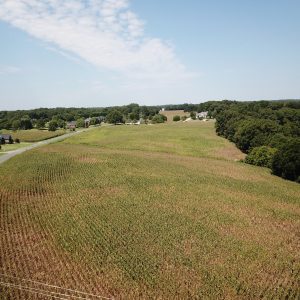
Is there a leadership deficit in rural communities and small towns?
“The more successful towns have a champion. The really successful ones have multiple champions.” We visited Liz Parham, director of North Carolina’s Main Street Program, to learn about how communities across the state are capitalizing on their cultural and natural assets to revitalize local economies. But it was a different type of asset – people […]
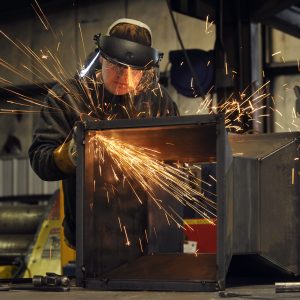
How can we reconnect North Carolinians to opportunities and good jobs?
To move up the ladder of opportunity, there’s generally consensus that people need jobs that pay a living wage, where they can grow their earnings over time. But what’s the best way to get workers, especially low-income workers with barriers such as low educational attainment, connected to those jobs? That’s the focus of the ReCONNECT […]